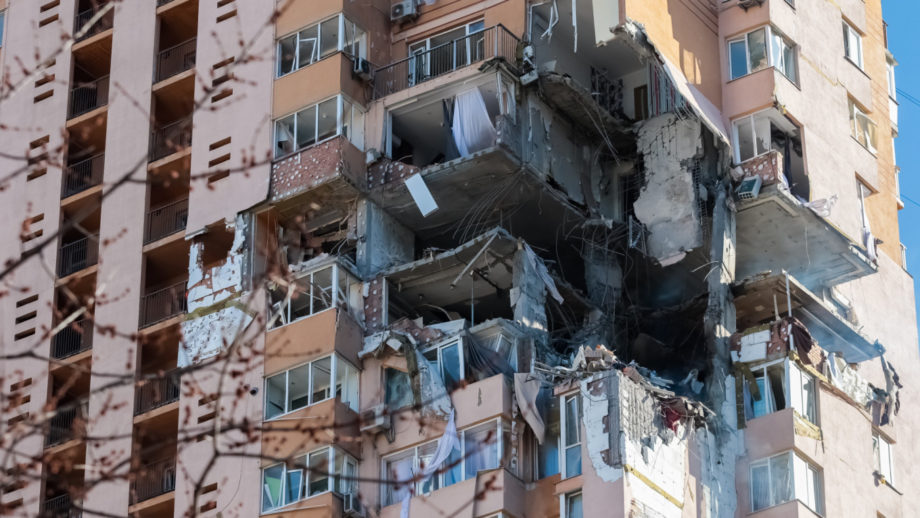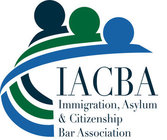For over a week, the civilised world has watched aghast as Russia’s army advances towards Kyiv and its airforce and rocketry turn cities like Kharkiv and Mariupol into charnel houses.
Left to fight alone against overwhelming odds, the people of Ukraine must surely despair at the prospect of Russia ever facing justice for its ghastly human rights violations.
The response of the international legal community in the months and years ahead must be to ensure that it does.
Anthony Moore SC and Gavin Rothwell BL are both members of the Human Rights Committee at the Bar of Ireland.

Anthony Moore SC 
Gavin Rothwell BL 
Crucial to this will be the International Criminal Court. Established under the Rome Statute in 1998, which almost 120 countries (including Ireland) have ratified, the ICC sits in The Hague and investigates and prosecutes individuals in cases of genocide, crimes against humanity, war crimes, and aggression. Since it started work, it has heard 30 cases, some with more than one suspect, and has recorded 10 convictions and 4 acquittals.
The crimes the ICC is responsible for prosecuting are, sadly, all too familiar from recent European history.
- “Genocide” includes the intent to destroy, in whole or in part, a national, ethnic or religious group.
- “Crimes against humanity” comprise 15 specific crimes, including murder, rape, imprisonment, when committed as part of a widespread or systematic attack directed against a civilian population.
- “War crimes” constitute grave breaches of the Geneva Conventions on the law of war, such as the killing of civilians and attacks on non-military areas, hospitals and historic monuments.
- Lastly, “aggression” is the use of armed force by a state against the sovereignty, integrity or independence of another state.
The ICC Prosecutor, Karim Khan QC, has already announced (2nd March) that he has opened an investigation into allegations of genocide, war crimes, and crimes against humanity in Ukraine, asserting the existence of “a reasonable basis to believe crimes within the jurisdiction of the Court had been committed” and that his office had identified potential cases that would be admissible. He made clear, however, that the ICC cannot exercise jurisdiction over allegations of “aggression” in the present conflict, because neither Russia nor Ukraine are parties to the Rome Statute. The only way Russia could be held accountable for the crime of aggression would be if the UN Security Council were to refer it to the ICC, but as Russia is a permanent member of the Council, it would obviously veto any attempt to do so.
It is not difficult to understand the reasons for the ICC’s current probe. In the last days, there have been credible reports of Russian forces bombing non-military targets, including civilian residential areas, attacking a maternity hospital and a kindergarten, shooting children, and targeting the Holocaust memorial at Babyn Yar, site of a mass grave of Jewish victims of the Nazis. The types of weapons used by Russia are also coming under scrutiny, with allegations of indiscriminate use of cluster munitions and thermobaric bombs in urban areas, causing immense risks of death and serious injury to civilians.
Modern technology makes the task of documenting atrocities like these much easier. Ordinary Ukrainians are capturing appallingly vivid images of what the Russians are doing to them and their country on their mobile phones, and sharing them with the world on social media. Such material will likely provide powerful evidence at future trials before the ICC. The founder of the investigative journalism site Bellingcat, for instance, has spoken of how his organisation is working secure such footage with that in mind.
The question remains as to who among the Russian civilian and military leadership might potentially wind up in the dock of the ICC on account of their actions in Ukraine. Those who, like President Putin, planned and prosecuted the war from behind the Kremlin walls certainly face that prospect, as do Russian forces on the ground in Ukraine who order or commit crimes falling within the ICC’s jurisdiction.
In procedural terms, if the ICC identifies suspects at the end of its investigation, it will issue arrest warrants. Suspects would have to be arrested in a state that accepts the ICC’s jurisdiction. Upon arrest, they would then be held in the ICC’s detention centre in The Hague. From that location the pre-trial, trial, and appeals stages would all take place – mirroring typical proceedings of a court case – with lawyers for either side, heard before a panel of judges. The maximum sentence on conviction is 30 years imprisonment – with life sentences possible in exceptional circumstances. Sentences are served in countries which have indicated to the ICC their willingness to accept sentenced persons.
History has shown that nemesis can, eventually, catch up with once powerful and untouchable leaders. President Slobodan Milosevic of Yugoslavia and Radovan Karadzic of Republika Srpska were both handed over to an international criminal tribunal for the Former Yugoslavia and convicted of war crimes, the former ending his days there. The ICC, too, is willing to pursue the “big fish”, currently having outstanding arrest warrants against Omar al Bashir, the former president of Sudan, for war crimes, crimes against humanity, and genocide.
Whilst the idea of President Putin spending the rest of his life in a lonely cell in Kyiv may seem unrealistic at present, the beginning of the ICC investigation brings that makes that prospect a realistic possibility.
Discover our Specialist Bars

The Irish Criminal Bar Association is a representative body for Irish barristers who practice in the criminal courts. Their aim is to be a voice for criminal barristers on issues specific to the criminal bar.
They aim provide relevant Continuing Professional Development seminars, information and public events to better inform the criminal practitioner and wider public of the criminal law.

The Immigration, Asylum and Citizenship Bar Association (IACBA) is an association of barristers who are members of The Bar of Ireland specialising in immigration (including EU free movement of persons), asylum and citizenship law, in addition to related areas such as employment permits, family reunification and trafficking in human persons.
Their aim is to provide relevant continuing professional development seminars, information and public events to better inform barristers and the wider public of these areas of law.